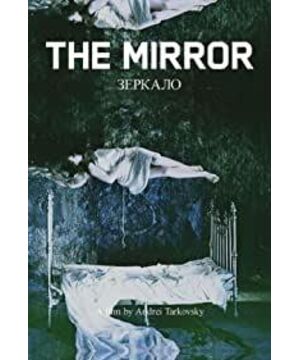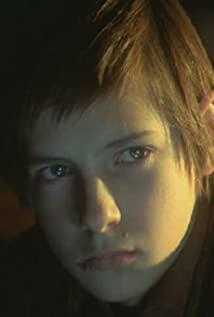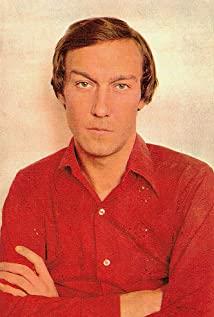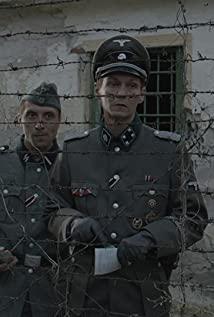Note: The above text is from the Hong Kong Film Archive
just finished watching "Mirror". After thinking about it, because of my shallowness and ignorance, I'd better write my intuition.
In the process of watching The Mirror, I was constantly confronted with contradictions, confusion, self-conflict, and memory experiences beyond my known comprehension. Tarkovsky, a Russian who has never been able to get rid of his depression, has become a labyrinth. When the latecomers try to decompose, refine, or even just glance at the flowers, they are attracted by the huge gravitational force, and then rejected.
I tried to figure out how strong the idea was, and how much confusion I got—until I suddenly realized that I might have been wrong in the first place. Why do I have to care about the symbols, the metaphors, the things that have been theoretically analyzed countless times? Why must the eyes be transformed into X-rays? Even for a filmmaker like Tarkovsky, his personal memory cannot be the absolute basis for the existence of a film. Isn't the fascinatingness of "Mirror" not a reflection of the image?
And everything that I can't say because of my lack of language or suffocation.
Mirror:
The mirror always bears the memory and the subconscious, reflects the boundary of life, and also describes the mystery. But in The Mirror, the mirror only provides a gesture of viewing, or, in other words, depth. I think I will no longer try to find a typical script personality theory from this memory mirror of Tarkovsky, nor will I try to explain the implied value and narrative function of the mirror from an aesthetic point of view. It may be true that it is a technique and a means, but it is not the only core. Just look at the reality he recreates from everyday life, the abstract images full of realistic textures, and the details of life and natural scenes that he refines and creates with a gesture of reverence. This man, no matter how much objection there may be to his personal actions, has reverence and compassion for the world. Forgive me for not being able to express my feelings accurately, I can only put down the weapon of analysis, return to the naturalness it should be, and rely only on intuition to stare at... the beauty of the image, the way the highly unified world exists.
"The great world is only open to those who gaze upon it."
Forbearance singing, calm and devious:
In fact, even in such an extremely personal film poem, Tarkovsky did not adopt a completely open way to express it, maybe this has something to do with his personal character. Looking back at the people in that special social state from the new century always makes people feel embarrassed. He can "review" the film authorities of the former Soviet Union, and he can turn back and despise his "Ivan's Childhood" for some reason, but these are not really important. At the same time, can we avoid the alienation and misinterpretation in it? In fact, I don't want to see too many expressions of his personal pain in it. Impulsivity is always hard to trust, and there are too many persecuted movies in this world. Fortunately, what tarkovsky expresses is not those "facts" or "events". In his eyes, how to present all this is more in line with his idea of the world - if not for me ignorance, which should be one of the reasons for his uniqueness and greatness. He sees this as a gateway to a vast spiritual world.
There is such a long shot in the film: sunset, pastoral scenery, mother and child walking from the far field of the field, to a close shot, and the painting is drawn from the left. The still camera starts to move to the left, and the child re-enters the painting, standing and shouting facing the field, and then the child runs away and chases the mother in the distance. The camera moves in a trajectory away from the characters and penetrates into the woods. The setting sun shines faintly in the woods, and the characters go away.
He's always been like this, completely building up an aesthetic that's different from regular montages, no, that shouldn't even be called an aesthetic, it's a gesture and a way of remembering, almost, the embodiment of a dream. The state of the characters, the rhythm, the direction, the movement that is clearly filmed but has no trace, even the smell of light and shadow, the depth of the picture... I don't want to just say that this is poetry I prefer to say that this is a dream of memory and experience, originating from the logic of lucid conception and modeling, but it can be transformed into a dream of images (not a dream in a narrative context), returning to the psychological and physiological nature condition. The so-called "all intermediaries are obstacles", thinking system should be one of them. However, when the dream of the image unfolds, thinking is already a matter of another world. If I have to mention his usual theme of salvation, moral reflection, then I would say that he also used the camera to sensitively reconstruct the moral implication of all the fragments of life from his standpoint, and at the same time, he tried his best to purify the existence in the image. the world in.
Bewilderment begins with images, but it also ends with viewing.
I think I've forgiven my ignorance for a while because I feel a smooth joy in the presence of this image - yes, just looking at it makes me feel joy.
——————————————————————————————
2003.5
View more about Mirror reviews











